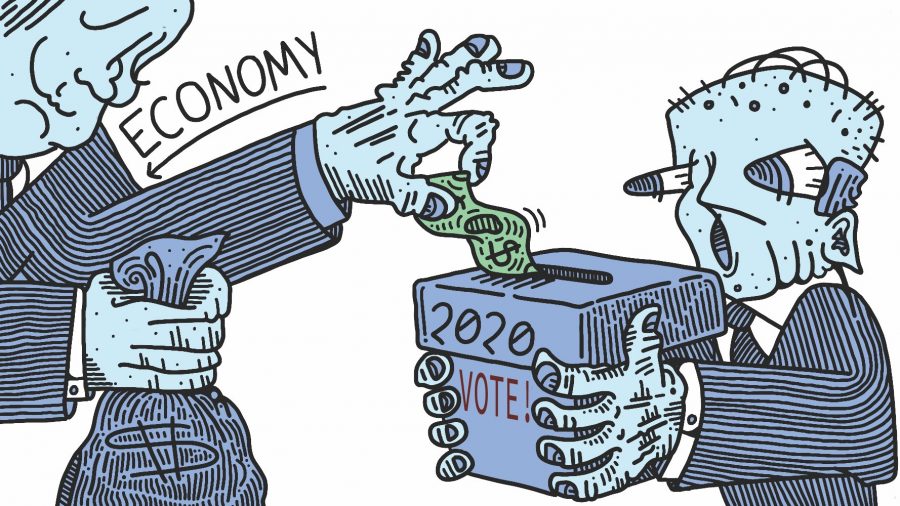Out of a once crowded field of 26 Democratic candidates competing for the Democratic presidential nomination, only 10 survived for the third 2020 presidential debate.
Though our near and dear mayor failed to qualify, other candidates like frontrunners Joe Biden, Sen. Bernie Sanders and Sen. Elizabeth Warren surprisingly debated everything except the economy. While that may be the fault of the moderators, failing to address economic concerns could prove detrimental if they stand any chance against President Donald Trump, or redeeming his “Trumpublican” and Republican fan base.
Trump’s perhaps only true strength during his presidency is America’s economic performance. After all, the unemployment rate is virtually constant and low at 3.7% for August, suggesting that anyone who wants a job can have one. Wages rose 0.4%, implying employers are increasing pay to lure workers and prices are not rising as fast as incomes, as reported by The New York Times.
Funny how recent polls showcase a dip in Trump’s approval rating on the economy, with a CNN/SSRS poll finding that only 48% of registered voters approve of the economy, down from 56% in April, CNBC reported.
Seems like festering recession fears are undermining the supposed “American prosperity” that Trump will no doubt tout during his 2020 reelection bid.
No matter one’s political perspective, no one should want a recession.
Yet, Democrats would be foolish to not expose the weaknesses in an economy supposedly “so strong.” While determining a recession is impossible until it happens, it is difficult to ignore classic economic indicators that warrant some concern.
Recession talks have grown while the Federal Reserve might cut interest rates to facilitate spending.
CNBC describes these economic indicators — the yield curve which measures investor risk in the bond market, has deeply inverted this year which it has not done since before the Great Recession. This inversion where short-term bonds carry higher interest rates than long- term ones suggests waning investor confidence in the near rather than distant future.
Global growth is deteriorating, such as in the U.K. and China. Even economic growth is slowing in the United States, with the GDP dropping from 3.0% in the first quarter of 2019 to 2.0% in the second, CNBC also reported.
So much for making America great.
Meanwhile, Trump’s tit-for-tat trade war with China only diminishes investor confidence and menaces economic outlook. Heavy industries were hit the hardest, such as manufacturing, which contracted and only added a mere 3,000 jobs and resource extraction, with mining and logging employment decreasing by 5,000 positions, The New York Times reported.
It is ironic how those who hail from the industries most harmed by Trump’s economic policies, such as working-class whites and farmers, are the very ones that voted #Trump2016.
While Trump continues distracting constituents by downplaying economic weaknesses and trade war effects with subsidies to soybean farmers, or blame towards the “LameStream Media,” Democratic candidates must emphasize that everyone is not benefitting from the longest economic expansion in U.S. history.
While focusing on immigration, impeachment, racial injustices and other divisive issues will mobilize the Democratic party, they make up only a fraction of the electorate. Such tactics may only work in the short term and may not provide the long-term foundation the Democratic party needs.
Democrats must be strategic as voters will be paying attention to their every move before the Iowa caucus.






